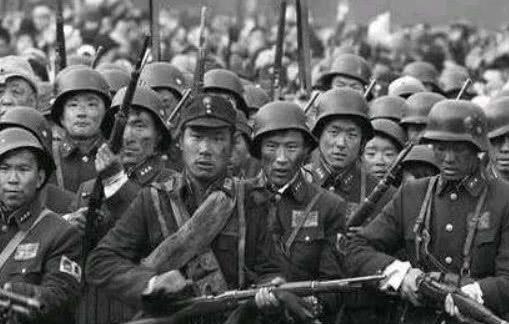One of the four famous anti-Japanese generals in Guangdong, he fought the only beautiful battle in the defense of Nanjing, and his later years were difficult
The Battle of Nanjing was a difficult and large-scale battle fought by the Chinese army after the outbreak of the all-out War of Resistance, and before the battle began, tang Shengzhi, the commander of the Nationalist army, vowed to persevere to the end, but in the end he did not do it and suddenly ordered a retreat.
For a time, other Nationalist generals who continued to fight in the trenches were caught off guard and could not retreat in time, and finally 100,000 Nationalist troops fell into the hands of the murderous Japanese army, and less than 30% of the Nationalist troops successfully escaped from Nanjing at the end of the battle.
The 30,000 Nationalist troops who luckily escaped from Nanjing, many of the troops were in a very bad situation, only Deng Longguang and Ye Zhao led the troops to break through the encirclement of the Japanese army, so that the world knew the strength of the Chinese army, which was also the only few beautiful battles in the defense of Nanjing.

In the National Revolutionary Army's Eastern Expedition and the Northern Expedition, Deng Longguang's performance was very positive, and the general Liu Dechun under the warlord Wu Peifu was captured by him in Wuhan Snake Mountain, which can be described as a great achievement. After the outbreak of the War of Resistance Against Japanese Aggression, Deng Longguang's highest official position was the commander-in-chief of the 35th Group Army of the Nationalist Army, and he was one of the four famous anti-Japanese generals in Guangdong.
During the defense of Nanjing, when the Nationalist army received the order to retreat, the Japanese army had already surrounded the city of Nanjing, and it was very difficult to break through, and a large number of people and soldiers who were ready to cross the river to escape for their lives were gathered on the riverside, but in the end they were all killed by the Japanese army, and the blood stained the water of the Yangtze River red.
The other Nationalist soldiers were all in a mess, but Deng Longguang was very calm, and when he received the order to prepare for retreat, he immediately contacted Ye Zhao, and the two of them formed a unit of the 83rd Army and the 66th Army, With Ye Zhao's troops leading the front, and Deng Longguang's troops cutting off the troops in the back, which was even more dangerous after the break.
The battle on the river attracted a large number of Japanese troops, the breakthrough soldiers suddenly rushed out of the trenches, shouted slogans in Cantonese to kill the enemy, and launched a fierce attack on the Japanese army.
In the later War of Resistance Against Japanese Aggression, Deng Longguang also performed much better than other Nationalist generals. In 1939, the Battle of Guinan broke out, the Nationalist army could not resist the powerful offensive of the Japanese army, after the battle, many famous generals of the Nationalist army, Bai Chongxi and Chen Cheng, made self-examination in public, and Deng Longguang not only defended his position, but also caused a heavy blow to the Japanese army and was commended.
During the wartime battle of Yuxianggui, the Japanese army took advantage of the huge advantage to grasp the situation on the battlefield, Deng Longguang was responsible for defending Liuzhou, and the nationalist army as a whole showed a major rout, but he led the army to resist desperately, blocking the advance plan of the Japanese army in one fell swoop. He had actively promoted cooperation between the Kuomintang and the Communists, so Chiang Kai-shek did not entrust Deng Longguang with heavy responsibilities during the War of Liberation.
After the end of the Liberation War, Deng Longguang fled to Taiwan with Chiang Kai-shek's defeat, although he was a very famous veteran of the Nationalist Army on the mainland, but after arriving in Taiwan, he slowly disappeared from the political stage, Deng Longguang's life in Taiwan was very difficult, and finally Chiang Kai-shek rescued him with NT$100,000, so that he could spend his old age in peace.